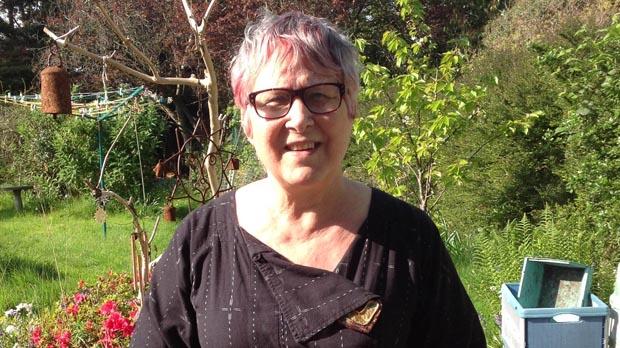
"I was delighted to take part in a clinical trial as it has the potential to really help others in the future.”
This study looked at the causes of Barrett’s oesophagus and whether family history has a part to play. It was for people with Barrett’s oesophagus and their relatives.
In Barrett’s oesophagus, the cells of the food pipe (gullet or oesophagus) have started to change. When stomach acid comes back into the oesophagus (acid reflux) it irritates the lining and can cause indigestion and heartburn. If this happens over a long period of time the cell type can begin to change and become abnormal.
People with Barrett’s oesophagus are at a greater risk of developing cancer of the oesophagus. The more abnormal the cells changes are, the greater the risk of these cells developing into cancer.
But most people who suffer from reflux do not develop Barrett’s oesophagus. So there may be other reasons why Barrett’s oesophagus affects some people and not others. Some studies have suggested that inherited faulty  may influence the development of this condition.
may influence the development of this condition.
In this study, people with Barrett’s oesophagus were asked to have a blood test and fill in a questionnaire about their family history and lifestyle. The researchers used the blood samples to look at the DNA (genetic material) to find out if there are any faulty genes that increase the risk of Barrett’s oesophagus.
The aims of this trial were to find out whether inherited faulty genes play a part in the development of Barrett’s oesophagus.
The trial team confirmed previous studies suggesting that some people who have Barrett’s oesophagus have developed this because they have inherited a combination of small changes in key genes. They identified some gene changes (not found before) that are thought to be important in the development of Barrett’s oesophagus and oesophageal cancer.
The researchers have published results on 2 different occasions.
In 2013 the researchers published the findings of a comparison between people with Barrett’s oesophagus, people with cancer of the oesophagus and people who did not have cancer or Barrett’s oesophagus (the  ). These results were looked at alongside the results of other studies investigating Barrett’s oesophagus.
). These results were looked at alongside the results of other studies investigating Barrett’s oesophagus.
The following took part in this part of the study, about
The researchers found 3 genes changes (that had not been discovered before) in both people with Barrett’s oesophagus and cancer of the oesophagus. When working normally, 2 of these genes are important in the development of the oesophagus. The other gene, when faulty, was found to play a part in the development of cancer.
The researchers concluded that the inheritance of faulty genes may play a part in developing these cancers. But it is likely that other factors, such as environmental and lifestyle factors also play a part.
In 2015 the researchers published further results of their work. The second part of the study included about 10,150 people with Barrett’s oesophagus and about 21,000 people who did not have Barrett’s oesophagus (control group).
The researchers found 2 faulty genes (not discovered before) that increase the risk of Barrett’s oesophagus. This supports earlier research showing that inherited faulty genes can cause Barrett’s oesophagus. But this may only be the case in a small percentage of people and so the authors concluded that although family history is important, the role of inherited faulty genes in Barrett’s oesophagus affects a smaller number of people than other studies have suggested.
The researchers found that when these 2 genes work normally, they have an important role in the development of the oesophagus and in the normal inflammatory response to acid reflux.
The study team are continuing to examine the genetic and lifestyle factors that lead to the development of these conditions. In the future, the researchers hope that people at high risk of developing oesophageal cancer can be identified and measures can be taken to prevent this cancer from developing.
We have based this summary on information from the research team. The information they sent us has been reviewed by independent specialists ( ) and published in a medical journal. The figures we quote above were provided by the trial team who did the research. We have not analysed the data ourselves.
) and published in a medical journal. The figures we quote above were provided by the trial team who did the research. We have not analysed the data ourselves.
Please note: In order to join a trial you will need to discuss it with your doctor, unless otherwise specified.
Dr Rebecca Fitzgerald
Medical Research Council (MRC)
NIHR Clinical Research Network: Cancer
If you have questions about the trial please contact our cancer information nurses
Freephone 0808 800 4040

"I was delighted to take part in a clinical trial as it has the potential to really help others in the future.”